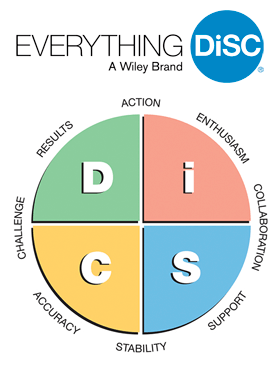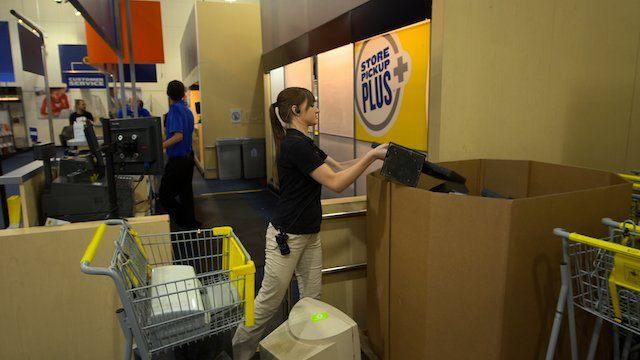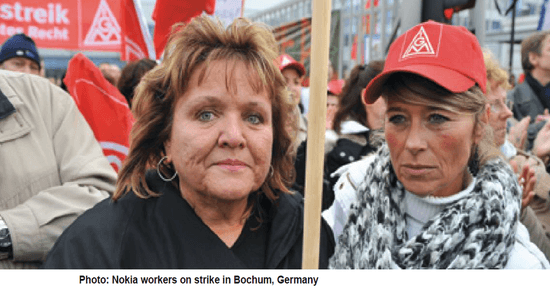How Giving Hugs and Showing Compassion Will Grow Your Business


By Sheldon Yellen
It’s easy for people to associate business leaders with closed doors and dollar signs, especially when they’re constantly bombarded with images of intimidating men and women in power suits.
In fact, the typical portrayal of a business leader is someone who lacks compassion and only cares about the bottom line. But these stereotypes leave out one key fact: When leaders forget about the human element, they’re holding back their companies and limiting the success of others.
For example, as the CEO of a property restoration company, I often wore a suit and tie to work. But one day — when I found myself cleaning soot from a house that had burned and crawling underneath houses to remove damaged insulation — that all changed.
I appeared on the TV show “Undercover Boss” and learned that my suit and tie intimidated my colleagues. They were afraid to approach me with problems, which was an alarming realization for a leader. I wanted all of my colleagues, from water technicians to high-level managers, to feel like they could talk to me about anything.
So, I switched out my suit and tie for jeans and a sport coat and let my colleagues know why I did it. I was shocked by the number of conversations I had with some great people. My colleagues told me that they now perceive me as approachable and compassionate. Today, this compassion is a core element of our company culture.
The real benefits of compassion
When we incorporate kindness into our businesses, we become more than just another brand; we become a stronger network of people striving to accomplish a shared goal.
In fact, one study found that companies judged to have a conscience outperformed the market by 10 times. Compassion can benefit your business internally as well.
Take the call center Appletree Answers, for example. Inspired by the Make-A-Wish Foundation, the CEO established a program called Dream On, which allowed employees to express compassion to one another on a regular basis. As a result, the company’s turnover rate dropped from 95 percent to just 30 percent within a few months.
Perhaps numbers like this explain the growing trend toward compassionate management. But it’s still a tough sell. Too often, leaders think they have to be unapproachable micromanagers to be effective, but that’s simply not true. Just look at Bill Gates. His dedication to philanthropy benefits the greater good and has strengthened his brand by fostering collaboration, boosting morale and inspiring his colleagues to show compassion.
Build a business to last a lifetime
Compassion makes everything run more smoothly in a business. Here are eight ways you can infuse compassion into your company culture to help it thrive long after you’ve passed the baton to the next leader:
1. Develop personal relationships. There shouldn’t be such things as “work relationships.” Take the time to get to know your colleagues on a personal level. Go to weddings, birthdays and even funerals. By showing you care, you are opening the door to personal and professional growth.
2. Listen to your people. There’s a reason we’re given two ears and only one mouth. You can be more effective if you take the time to listen to those around you. If you want to be compassionate, don’t dominate the conversation. This will only lead to more disconnect between you and your colleagues.
3. Offer autonomy. A true business leader should be able to ask how things are going and say, “Great! I’m going to let you handle this and get out of your way.” These leaders trust the people around them to make the right decisions. By doing this, they are unleashing the creativity of their colleagues.
4. Practice transparency. Leaders see their companies from unique perspectives. It’s important to respect your colleagues enough to communicate why you make certain decisions. This is especially true of controversial or tough decisions. Keeping people in the dark only leads to suspicion and gossip. Openness builds credibility.
5. Foster mutual trust. It’s important to practice what you preach and do what you say you’re going to do. If you aren’t thinking with your colleagues’ perspectives in mind, you’re more likely to let them down, and that will damage your credibility. Trust must flow both ways. Mutual trust boosts morale and increases retention.
6. Build morale through small gestures. A leader can change a life with a simple gesture. You have an extraordinary capacity to influence the lives of those around you. Small things, such as buying a colleague a cup of coffee, can greatly affect how you are perceived as a leader. When you take the time to care about your colleagues, they’ll take more time to care about the company.
7. Be humble. Perhaps the most important lesson I’ve learned about leadership is that my status and position are a privilege, not a right. It’s important to remember that the position you hold could have gone to anyone. Sure, hard work and drive play a huge role, but your circumstances and the life into which you were born are equally important.
8. Put the handshakes aside. If you are truly a compassionate person who is lucky enough to be in a leadership position, don’t be afraid to put the traditional handshake aside. Feel free to simply give a hug!
At the end of the day, leaders are ordinary people — but with extraordinary responsibility for others. Leaders who use compassion to drive their businesses will experience real-time benefits and grow a stronger network of colleagues and customers.
Image credit: Flickr/Ted Eytan
Sheldon Yellen is the CEO of BELFOR, the worldwide leader in property restoration and disaster recovery. BELFOR has more than 6,400 employees in 300 offices spanning 31 countries. Sheldon’s “rags to riches” story epitomizes the “American Dream” story of overcoming adversity and persevering in order to achieve success. Sheldon was featured on CBS’s primetime show “Undercover Boss.” His episode attracted 13 million viewers and received an Emmy Award nomination for Outstanding Reality Program in 2011. His dedication to his colleagues at every level of the company and his successful leadership style make him a highly sought-after speaker and led to him reappearing on two “Undercover Boss” reunion episodes: “Epic Bosses” and “Busted Bosses.”
Inside DailyWorth: Financial Resources for Women


Editor’s Note: This article originally appeared in the April 2015 issue of Green Money Journal on “Women and Investing.” Read more excerpts here.
By Elsie Maio
It is always great to hear two knowledgeable people having an engaging conversation, as is the case with this interview between two inspiring businesswomen.
Amanda Steinberg is the founder and CEO of DailyWorth, the leading financial media company for women. She is interviewed by Elsie Maio, founder of Humanity, Inc. and the SoulBranding Institute, which provides e-tools and business consulting for positive social impact.
Elsie Maio: Amanda, I’ve heard you say that the company you founded, DailyWorth, is ‘at the nexus of women and financial services.’ In a way, you’ve been sitting at that intersection since you were a child, yes?
Amanda Steinberg: My single mom demanded I learn financial independence at a young age. I remember so many days watching my just-divorced mom cry due to being stressed and overwhelmed. She was never supposed to be anything but the good wife and mother. One day, she snapped, forcefully gripping my scrawny 5-year-old biceps, and said with utmost intensity: “Always earn your own money and create your own wealth.”
Despite political aspirations, I knew I needed to make major dollars. So, in college I learned programming and pursued Web development, building my first agency to over $1 million in revenue by age 23. I also joined Social Venture Network, a member organization of CEOs committed to social enterprise – creating a better world through for-profit enterprise.
EM: Since founding DailyWorth in 2009, you’ve become a mainstream voice, bridging the business community, popular culture (that Cosmo article), and world of responsible investing and business practice. Did you ever imagine such an expansive role for yourself?
AS: I knew it at age 8, watching LiveAid on TV. I knew I would be a leader in shifting that kind of injustice, on a stage with millions of people. On Jan. 14, 2011 my dream merged with my reality when Eric Schmidt, Google’s chairman, invested in DailyWorth.
EM: Now, there’s general agreement that within a few years, people who are relative ‘strangers’ to investment decisions will control two-thirds of the wealth of the United States. Those people are women. What are they up against? What kind of support do these women need?
AS: I’ve lived the range of challenges many of them face. For example, in spite of earning more than $200,000 a year at age 30, I had another painful financial awakening. An excessive mortgage and then an unexpected tax bill wiped out all attempts to fulfill on my mother’s wish. But it wasn’t just me, I realized. Women all around me, despite limitless ambition and professional achievement, were lacking the confidence and know-how to manage money. I thought: How could we have a world of empowered women, shattered glass ceilings and prosperous communities if women struggled with personal finance?
I launched DailyWorth.com in 2009 to transform women’s relationship to money, by cultivating her self-worth as the missing element in enabling her to build net worth.
DailyWorth is now the leading financial media and education platform for women. We help women at every stage of their financial lives, and are the first place they go for help.
EM: Observers say DailyWorth is ‘ahead of the curve’ in helping women – and the financial services sector itself – to prepare for this massive shift in ownership of $23 trillion. How is DailyWorth staying ahead of the curve?
AS: By leading the leaders. They are women in careers with upward mobility. They are running the media, running the banks. They have corporate, political and social influence.
Through our media platform we publish financial advice and news, and are building the central eLearning platform connecting women to financial advisors and educators. Second, by retraining the financial services industry and building its capacity to serve the unique needs of its new customers. This year we will have trained 1,000 financial advisors to specialize in serving women. And third, by encouraging the industry to innovate with specific products that meet the unique preferences of this new market.
EM: So, you and DailyWorth are influencing this huge shift in two ways: One, empowering women, the soon-to-be owners of most U.S. wealth, to step into to their new role; and two, helping the financial services industry to build specialized capacity and innovate its offerings to the preferences of this emerging, dominant market. Let’s talk about each of those in turn. First, women’s personal awakening.
AS: Women lack confidence and know-how around money. Also, they are concerned that too much power around money makes them less desirable. We need to reframe it as opportunity and freedom.
Read the full interview at here.
Elsie Maio Elsie Maio is the founder of Humanity, Inc and the SoulBranding Institute, which provide e-tools and seasoned business brilliance for social good. Elsie has helped catalyze notable corporate transformations and, in her Private Client practice, personal breakthroughs for individuals, many of them women in business. She has a knack for getting to the heart of the matter fast.
Amanda Steinberg is the founder & CEO of DailyWorth, the leading financial media company for women. Amanda is a thought-leader on the topic of women and money. She’s a computer programmer by training, a sales woman by profession, and a serial optimist at heart. A graduate of Columbia University, Amanda lives in Philadelphia with her two children while commuting to DailyWorth’s headquarters in New York.
12 Ways to Encourage Emotional Intelligence


By Laura Morrissey
High emotional intelligence (the ability to recognize and manage your own emotions, and those of others) is important in our personal relationships. Did you know it also leads to productivity and efficiency at work?
Here are 12 tips for how to improve your emotional intelligence and enjoy the life-enhancing changes that will naturally follow.
- Embrace your emotions: As long as you aren't using them in a way that will hurt others, embracing your emotions is a good way to build humility. We have a wide spectrum of emotions, and they are all supposed to be felt. Once embraced, it comes naturally to be patient and kind, as you can identify with and recognize how others may be feeling.
- Anticipate karma: Do something good for someone else. Do it just because it will make you feel good. Don't expect anything in return, enjoy the feeling that doing good for others brings. Trust that something good will happen to you later.
- Judge less: Or just stop judging. People act in different ways for a reason; we aren't all the same and an explanation is not necessary all the time. Just chill and accept it.
- Meditation: Meditation will quiet your mind and rid you of bad feelings. The aim is to eventually reach a higher level of consciousness and inner calm, that can then be projected onto your daily activities. Others may even notice a change in you.
- Find an outlet for your emotions: Often the workplace is not the place to be letting your emotions get the better of you. Many jobs require rationality. Workplace efficiency training tools can help here, to let you know more about yourself and others and your personality styles. To stop emotional responses from affecting workplace performance and relationships, find an outlet that will help you use them constructively. Some emotive outlets are physical -- running or yoga are popular -- or try creative outlets such as painting or writing down thoughts and feelings.
- Follow your heart and your head: Don't waste time on mistakes that could have been easily prevented by being honest with yourself about what you want and how feasible it is going to be. Don't act on a whim; be considered. As good as it is to recognize emotional responses, don't always act on them; self protection might be needed in the form of taking the time to think rationally.
- Take full responsibility: You and only you are responsible for your life. Don't allow a victim mentality to creep into your thought processes.
- Ask yourself what you really want: Take a step back and think about what you would really want if life had no restrictions, financial or otherwise. Don't say you don't know. You do. It probably scares you a little, but don't be afraid to admit it to yourself. Making small changes to move in the right directions toward your goals will make you feel more positive each day.
- Stop blaming others: Regularly blaming others leads to bitterness. Being bitter means that focusing on past hurts and mistakes of others will encompass your feelings about the present and future. This is pointless and a waste of energy, as the past is gone.
- Stop blaming yourself: The reverse of blaming others is bad for you, too. It leads to guilt and possibly anxiety if you're spending too much time feeling down on yourself.
- Give yourself permission to succeed: Consciously give yourself permission to accept the good things in life. By no means get complacent, but acknowledge when you have done well. So many of us go through life never doing good things for ourselves. Start doing so, you deserve to.
- Face up to assumptions: It might be subconsciously, but we continually form assumptions about life, be it situations or relationships. Most of these are negative and stop us from doing something or behaving in a certain way, leaving us feeling disempowered. These beliefs can lead to a tentative life of anticipating failure. Change this by facing up to your assumptions and challenging them; failure in the past doesn't mean failure now or in the future.
To make these kind of changes in your life it will help if you really 'get you' and help you even more if you make an attempt to be understanding to others. This is easier said than done and you might find yourself asking 'BUT WHY?' when someone does something seemingly inexplicable.
A simple tool can be used to help you with improving understanding: the Everything DiSC. DiSC will analyze you and your colleagues or the people you spend the most time and provide detail on your style of personality. This deeper understanding is useful in implementing the steps outlined above.
Emotional intelligence can help to improve your performance at work, can be good for your mental health and makes for success for those in leadership roles, therefore it is worth adopting even just a small number of these traits.
Image credit: Everything DiSC
Laura Morrissey is a writer for Everything Disc UK, a Performance Management Tool for assessing human behavior in the corporate world. She loves to engage leaders and professionals globally through her motivational and leadership articles.
Is There a Business Case for Product Take-Back?


There are many environmental and financial benefits to extended producer responsibility (EPR): the idea that a product’s manufacturers and retailers should assume responsibility for the environmental and social impacts of the product throughout its lifecycle, from sourcing the material and production to consumer use and disposal. EPR can result in more effective recycling programs and push manufacturers to create the product in a more environmentally and socially responsible way. This policy approach can also relieve governments and taxpayers from the costs of collecting and disposing of a product at the end of its useful life.
But what about EPR’s effect on the private sector – the companies making or selling the product? Can EPR – and taking responsibility for a product’s waste management, in particular – augment a company’s bottom-line, or is it always a loss leader?
The costs to operate a “take-back” program vary from product to product. Here we'll focus on electronics recycling.
The financial benefits a company can realize from running an e-cycling program depend on what types of electronic waste the company is collecting, said Barbara Kyle, national coordinator for the Electronics TakeBack Coalition.
“If you are taking back business e-waste – like desktops, laptops and servers – you can make money here,” Kyle said. “If it’s a manufacturer taking back consumer e-waste – especially if it’s mostly old CRT (cathode ray tube) TVs or monitors – it’s a loss leader.
"There are not a lot of options for what to do with the leaded glass in CRTs anymore – since people are not making new CRTs – and the [disposal] options are expensive ... If you are getting laptops and desktops, there is value there, to offset the negative value of other items like printers, TVs and various electronic peripherals, which are mostly just plastic and a low-value circuit board.”
Case study: Best Buy
Best Buy’s successful electronics recycling initiative makes an interesting case study to better understand the business benefits of electronics take-back programs. In 2009, the consumer electronics retailer launched a national take-back and recycling program for unwanted electronics, accepting e-waste like cell phones, digital cameras, computers and TVs every day in its stores. Best Buy also adopted a goal to collect 1 billion pounds of e-waste and large appliances through the program by the end of 2014, according to Scott Weislow, Best Buy’s senior director of environmental services.The recycling initiative was such a success, Weislow said, that Best Buy met its target in June 2014 – six months ahead of schedule. In 2014 alone, the company collected approximately 125 million pounds of e-waste and 112 million pounds of large appliances like refrigerators.
“Today, we collect more than 409 pounds of e-waste and large appliances for recycling every minute our stores are open,” Weislow said. “We estimate average annual growth of the program in the 20 percent range.”
In September of last year, Best Buy announced a new goal: to collect an additional 2 billion pounds of e-waste by 2020, Weislow said.
So, does Best Buy’s flourishing e-cycling program benefit the retailer’s bottom line? While Weislow couldn’t disclose specifics, he made it sound like the company had found ways to make the initiative at least somewhat profitable.
“Without revealing too much of our ‘secret sauce’ around the program – or our operational details and performance – we always strive to maintain a strong financial profile for the program,” he said. “Through the years, we have evolved this program to minimize our operating costs and maximize performance.”
In an interview with GreenBiz in 2012, Leo Raudys, Best Buy’s former senior director of environmental sustainability, spoke more explicitly about the program’s financials: The company makes money from the electronics recycling program in two ways, according to Raudys: First, from its recycling partners that sell the materials recovered from the e-waste – plastic, gold, lead and nickel, for example. Best Buy also collects payments from big electronics brands that are required by a number of states to recycle a percentage of the electronics they sell every year. Some electronics makers pay Best Buy to manage their compliance with these EPR laws and meet their recycling quotas for them.
Over time, Best Buy was able to improve workflows and boost volumes for the take-back program, which lowered the costs of collecting and transporting the discarded electronics, Raudys said. Higher volumes of e-waste also allowed the company to earn more competitive rates from its recycling partners.
When the company announced the program in 2009, it required consumers wishing to drop off their e-waste to purchase a $10 store card, but Best Buy dropped that program fee in late 2011.
Best Buy isn’t counting on extra sales from customers who come into a store to recycle their old DVD player or iPhone: It’s too difficult to identify and quantify sales that were a direct result of the recycling policy, Raudys said.
As of 2012, Best Buy’s take-back program was self-subsidizing and “just barely” profitable, he told GreenBiz. If the costs of the program had stayed as high as the company initially estimated – $5 million to $10 million in the first year – Best Buy might have cancelled the initiative, he said.
But Raudys said the consumer electronics retail giant sees its e-cycling program as a service to its customers – an advantage to the company that Scott Weislow reiterated to 3p:
“The most important benefit, of course, is providing unparalleled expert service to our customers, and we know our customers consider recycling to be a valuable service,” he said. “We hope that puts Best Buy on the ‘short list’ of companies they choose to patronize.”
Will new electronics designs jeopardize take-back programs?
But Barbara Kyle from the Electronics TakeBack Coalition pointed to a new trend in consumer electronics manufacturing that could threaten the financial viability of Best Buy’s and other electronics take-back programs.
“A lot of the new consumer electronics like tablets and smartphones are made in such a way that they are not economically recyclable,” she said. “It costs more to take them apart to remove the battery than you can earn in commodities from recycling.
"This is a new trend; you used to always make money from phones. But smartphones and tablets have fewer high-value metals used inside – compared to 'feature' phones and laptops – and the designs (like gluing in batteries) increase the time it takes recyclers to take them apart. The recyclers take them now because many of them have value for reuse – like for parts. But once those items are really ‘end of life,’ a recycler won’t want them. So, unless manufacturers address this at the design phase, they will have to pay more and more for take-back programs.”
If we want Best Buy and other companies to continue or set up electronics recycling programs – providing both an important service to the environment and their customers – let’s hope retailers, manufacturers and recyclers resolve these issues.
Image credit: Best Buy
Employee Engagement Helps Drive Business


It is often said that a company’s most valuable asset is its employees. Internal champions charged with embedding sustainability into their company’s culture know this to be true: Ask anyone who’s led corporate environmental or social responsibility initiatives, and they will tell you that employees can make or break any sustainability program. The success of other aspects of the business – from internal innovation to customer satisfaction – can also hinge on how well a company engages its employees.
The good thing is that when employees are meaningfully engaged – and by this, we mean more than the “free food-free gym membership-free massages” model of engagement practiced by some companies – employees and their employers can reap substantial rewards.
Beyond improving employee recruitment, retention, morale and wellness, engaging employees can also benefit business’ bottom lines, as numerous reports reveal.
Boosting creativity
Adobe is one company that fosters a culture of sustainability as a way to connect its employees to its product and purpose. As a company whose products enable people around the world to cultivate creativity, collaborate and conserve resources, Adobe engages its employees to practice what the company preaches.“This is the era of unprecedented creativity – there are more opportunities now for everybody to think creatively,” said Vince Digneo, sustainability strategist for corporate responsibility at Adobe. “People use our tools to generate creative solutions. We also enable people to become more sustainable through the use of our products.”
That is the case for Adobe’s customers as much as it is for its employees. When the company noticed that almost half of its entire carbon footprint was due to employee travel, it decided to get creative. It launched its Skip a Trip program, which invites employees to use its conferencing solution, Adobe Connect, to meet virtually with clients and colleagues instead of traveling hundreds or thousands of miles away.
In 2014, the Skip a Trip initiative saved 331 metric tons of CO2 equivalent. Over 711,000 miles of air travel was also avoided, the equivalent of traveling around the world 29 times and saving over 37,000 gallons of gasoline. The company also recently partnered with TerraPass, so when employees do travel they can offset their carbon emissions and Adobe will pay for half.
“Skip a Trip has allowed us to inform employees about how we can use our products to be more sustainable,” said Kim Kerry- Tyerman, senior program manager of corporate responsibility at Adobe. “Every employee wants to feel good about where they work. We offer something for everyone – that’s how we’re driving culture of involvement and innovation.”
Other products, such as Acrobat Document Cloud (DC), enable employees -- and customers -- to sign forms electronically, store documents in the cloud and avoid ever having to print precious paper. According to Digneo, 31.2 million e-signatures were facilitated by Acrobat DC in 2014 alone, eliminating millions of pounds of waste, not to mention water and energy use.
Enhancing customer satisfaction
Employee engagement is good for customer service, too. According to a 2011 Harvard Business School study conducted for Caesars Entertainment, there’s a strong link between employees’ level of engagement in sustainability activities at work, and customer loyalty and satisfaction.
The Harvard study revealed that the more Caesars Entertainment employees were engaged with the company’s workplace sustainability and volunteer program, called CodeGreen, the more Caesars customers were willing to return to its hotels or casinos.
According to the study, involvement in sustainability efforts to reduce water, energy and waste motivated employees and helped improve the company's customer service – therefore creating a positive customer experience that bodes well for the business.
These examples demonstrate that, time and time again, employee engagement is good for business. It helps employees think outside the box, innovate and delight customers. How does your business engage its employees around sustainability?
Image courtesy of Adobe
Twitter Chat Follow-Up: Leveraging Technology for Sustainability


Editor's note: This post is a follow-up to TriplePundit's recent Twitter chat with HP. In case you missed it, you can catch a recap here.
By Gabi Zedlmayer, Vice President and Chief Progress Officer for HP
During a recent Twitter chat with TriplePundit, I was asked, “What are the greatest areas of opportunity for sustainability and technology?”
It’s a great question, and one we think about constantly at HP as we innovate solutions for our customers, manage our operations and supply chain, and drive Living Progress programs that help solve some of society’s most difficult social and environmental issues.
There’s no doubt that the world has some tough challenges that threaten sustainability — rapidly growing population, effects of climate change, economic instability, global health crises, just to name a few. Yet, we live at a time of unprecedented opportunity. Technology enables infinite innovation. Possibilities that no one has even imagined yet will be realized through technology.
I’m passionate about the opportunities for tech and sustainability, because I see it in action every day.
Technology enables
The impact of technology can be felt in nearly every industry and every part of the world. Technology enables detection, treatment and prevention of diseases. It enables health care, education, banking and other vital services to be delivered to people in even the most remote communities. It equalizes opportunities so that businesses of virtually any size or location can compete and win in a global market. It eliminates resource-intensive processes, removing obstacles that limit human, economic and environmental progress.
One of my favorite examples of technology-enabling progress is HP's partnership with Conservation International (CI). We’re using HP’s big data solutions to help CI scientists dramatically improve the accuracy and speed of data collection, creating a first-of-its-kind, early warning system for threatened and endangered species in the world’s tropical forests. The program, HP Earth Insights, harnesses the power of technology to collect massive amounts of data from tropical forests and analyze it nine times faster than before. This means policy- and decision-makers can identify and proactively respond to threats as they emerge — helping protect hundreds of threatened species and their habitats.
Technology connects
Technology creates a truly global community, breaking down physical and geographic barriers. It provides people with access to massive amounts of information and resources on demand. It enables us to collaborate, share ideas and explore solutions with virtually anyone, anywhere, anytime — opening completely new pathways for solving these complex issues.
One of the ways HP is leveraging technology to bring people and ideas together is through our global HP Living Progress Exchange (LPX). Together with our partners at GlobeScan, we host global online discussion forums that unite creative thinkers and problem solvers across industries to discuss issues and brainstorm solutions to these tough societal problems.
We’ve found these forums to be a powerful way to share our successes and challenges, learn from other best practices, and gather insights that help us focus our strategy so we can drive Living Progress further and faster.
Technology mobilizes
One of the most exciting aspects of connecting people through technology is what it can do to mobilize action. When we care about an issue and we share information with our social community or express how we are responding to the issue, members of our community may find they share that passion as well. As they share with their community, it creates a ripple effect that grows.
We just saw that ripple effect multiply a million times this week: Conservation International announced that its Nature is Speaking campaign had reached its goal to have a million supporters use the hashtag #NatureIsSpeaking on social media. Building on our partnership with CI, HP was the exclusive partner of the #NatureIsSpeaking hashtag. That means every time someone used, clicked, shared, liked or marked as a favorite #NatureIsSpeaking on a social media platform, HP gave $1 to CI, up to $1 million.
The ripple created by the sharing of this hashtag not only resulted in a $1 million contribution to support CI’s conservation efforts, but it also helped raise awareness of the overall campaign message that nature doesn’t need people — people need nature. And that creates its own ripple effect.
That’s the power of people and technology in action.
Defining opportunity in 140 characters
So, what are the greatest opportunities for technology and sustainability? Is it enabling innovation? Is it connecting people? Is it mobilizing action? Yes. It’s all of these and infinitely more.
As I said in my 140-character chat reply, “Tech is changing the playing field — there’s no limitation on what tech can do to solve complex challenges.”
Now let me ask you: What do you see are the greatest opportunities for tech and sustainability? Share your thoughts at #LivingProgress.
Gabi Zedlmayer is Vice President and Chief Progress Officer for HP.
So, You Bought a Tesla Battery ... Now What?


Telsa Motors rolled out a new energy storage system last week, and the news set the Intertubes buzzing. Tesla's new Powerwall battery draws on the company's considerable experience in cutting-edge electric vehicle batteries, and translates it into neat, compact units for homes and small commercial users, as well as utility-scale users.
With the added benefit of solar energy storage, the new Tesla battery is winning hearts and minds, including those of us here at TriplePundit. However, therein lies the rub. If you want to get the biggest renewable energy bang out of your new Tesla battery, you're going to have to deal with the solar-installation permitting process. And depending on where your property is located, that can add up to one huge headache.
The soft cost of solar power
The sticky wicket is the so-called "soft cost" of solar power. Aside from the cost of the solar panels themselves, the cost of solar power also involves other factors such as the labor to install the panels, as well as considerable administrative costs related to local permits and grid connections.
On average, the soft costs of solar power can account for a good half of the total installed cost of a solar array.
Those costs -- and the headaches -- can increase even more when out-of-date, uncoordinated administrative systems are at play. For example, in some jurisdictions, a solar installation can practically breeze through the process relating to building permits -- only to bump into a months-long delay relating to the required grid connection.
The Obama administration's far-reaching SunShot solar power initiative includes a raft of programs aimed at reducing soft costs, partly by encouraging local jurisdictions to streamline their permitting processes.
Seamless solar power
While these federally-coordinated efforts may take some time to gain traction, some individual jurisdictions are already be ahead of the game.
That's thanks to a number of software companies that have been working with local governments to streamline their administrative systems in general, and solar permitting in particular.
We connected with one such company, Accela, and a phone conversation with Rob Cassetti, the company's senior VP of sales and marketing, gave us some insights into the kinds of solutions that are already beginning to percolate up. The result is a revved-up workflow that saves money for local governments as well as property owners and contractors.
One standout example is San Diego County, which adopted Accela's automated process to achieve a weeklong turnaround on a permitting process that previously took two to three months.
In addition to the software itself, Cassetti described a number of other interesting technology-oriented solutions that Accela can leverage through its open-source approach to partnerships.
One good example is provided by an Accela partner called VuSpex, which uses a Skype-type mobile platform to enable inspectors to "meet" a contractor onsite for a video inspection.
Another Accela partner in development is Inspector Buddy, which envisions a robotic device that can inspect and report on locations that would be difficult, dangerous or expensive for human inspectors to view in person.
Accela has been in the business for about 15 years, and as described by Cassetti, the company's experience with municipal permitting informs its approach to the solar power conundrum:
"Part of our strategy is to get out in front ... We really feel like we understand permitting, [but] a municipality also has to have a technology aptitude, a 'sense of adventure.'"
In other words, Accela understands that for all the high-tech advances in the solar power field, in many local jurisdictions the permitting process is still rooted in the tried and true boots-on-the-ground approach.
While larger solar-friendly cities like New York may have the resources to make the transition by developing their own systems, Accela has developed a permitting package or "template" solution for smaller municipalities, which can be modified as needed once the basic systems are in place.
An energy storage twist on solar-friendliness
As Cassetti noted during our conversation, solar power is an economic development catalyst. Forward-thinking cities and states have been leveraging solar-friendliness to build a green brand and attract new businesses, as well as new talent, and streamlining the permitting process is part and parcel of those efforts.
The new Tesla battery underscores how energy storage can work with solar power to boost a community's green brand. As new energy storage products take hold in the residential and commercial sectors, consumer demand will help motivate local governments to invest in more efficient, streamlined permitting processes.
In the meantime, before you invest a bundle in energy storage and/or a solar installation, make sure you check in with your local regulators and be aware of any obstacles you may encounter along the way.
Image credit (screenshot): Courtesy of Tesla Motors.
What's a 'Mad Man' Doing at a Global Humanitarianism Conference?


By Jamie Penn
After ambling up to speak at the SwitchPoint conference, somewhere in the lineup between corporate social responsibility (CSR) leaders, global humanitarian innovators, social impact strategists and serial game changers, John Newall, president of McKinney Advertising Agency, confessed that he couldn’t help but ponder his own presence there.
“I run an advertising agency for a living. We’re not global. We don’t put on conferences. I guess we’re sort of innovative, only not in a humanitarian sense,” Newall said. “I wasn’t in Syria or Africa yesterday. In fact, I was in Cleveland.”
SwitchPoint, held in Saxapahaw, North Carolina on April 23 and 24, is an annual conference produced by IntraHealth International, inviting entrepreneurs and business and nonprofit leaders from around the world to share and amplify their global impact in the fields of public health, technology, business, design, science and art. But it does so with a very specific goal in mind: to insist that thinkers and change-makers stretch themselves even further outside the box.
So, the presence of an advertising executive in a room full of humanitarian innovators just supports the SwitchPoint mission (as stated on the website): “to challenge you to stretch your boundaries, categories, comfort zones and contacts.”
Newall met the challenge head on.
Wooed a few months prior by the conference director, Heather LaGarde, Newall said that upon accepting the invitation to speak he stumbled down a path of serious soul-searching.
“Enraptured by Heather’s enthusiasm and charm … I enthusiastically said yes. Then, a week later, I went into a massive downward spiral wondering what in the world I was going to talk about,” said Newall, preempting a hum of laugher. “The good news is that the downward spiral sent me on a journey of self-discovery that actually reconnected me with what I do for a living and how it can be enormously powerful.”
Enter Unilever, the ultimate branding success story.
In 2010, several advertising agencies, PR firms and communications experts came together to communicate one of the boldest corporate moves in history in a way that would change the face of corporate responsibility and many lives around the world forever.
“Unilever, one of the biggest companies in the world, underwent a major transformation that year. Keith Weed, the chief marketing officer, became the chief sustainability officer and the chief marketing officer. The reason? It’s what people cared about,” Newall said.
This shift was born of CEO Paul Polman’s commitment to double Unilever’s revenues without increasing its natural resource consumption. In order to accomplish this, it became Unilever’s very public mission to make the world a better place.
Unilever’s popularity has gone straight to the moon and can be largely attributed to not only what the company and its agencies have chosen to communicate, but also how they’ve communicated it, Newall said.
Making the world a better place is Unilever’s marketing strategy. It’s the shining example of being the change that consumers want to see in the world. To this end, they’re not only doing better; they’re sticking to the plan.
So, it’s back to the old adage: Companies do really well by doing lots of good. But, why do some companies do good, better? Superior communications, Newall said.
Cue: advertising. Advertising can be a huge amplifier of the good going on in the world, but only when the messages are retained. Newall said that while $177 billion is spent on advertising every year, only half of the 360 advertisements that people are exposed to daily are remembered. People don't want the facts and statistics related to your organization's mission or the advantages of the products your company produces; they want what a company does and how they do it to matter to them.
“The stuff you like, the stuff you remember talks about the things you care about,” Newall said.“It’s the 'why you exist,' not what you make, that consumers want to hear.”
And, if you ask Sony, Evian, Virgin, Nationwide or Absolut among others, Newall is the man to talk to about optimizing consumer/brand relationships. They all hired him to do it.
Newall was named president of McKinney in 2012 after seven years of helping to lead the agency to a level of success that won it the title of “most effective independently-held agency in the world” by Effie International.
There have been few successes, Newall said, that have exceeded the Urban Ministries of Durham Spent campaign, designed and implemented by McKinney. Check it out here:
Newall and his team decided that gamification was the solution to communicating the insidious nature of homelessness. They designed a game that could take the player down the path to homelessness, allowing the player to witness firsthand how quickly one can spiral to destitution. They set up the problem so the consumer could relate to it.
The Urban Ministries of Durham campaign was a huge success. With over 100 million media impressions, 4 million games were played at an average rate of 11.5 minutes.
Point being: Awareness is hyper-contagious when engagement is amplified.
The companies and organizations represented at SwitchPoint, from social enterprises and organizations such as E-nable, Ipas and Intrahealth, to corporations like IBM, Phizer and Johnson & Johnson, are all engaged in global efforts to improve the world and the lives of its inhabitants. Their impact on the world stands to increase if and when their efforts are communicated effectively, Newall predicted.
"Advertsing," he said, "can be enormously influential."
You can to do a lot more good, he said to the audience, when you communicate who you are really well.
Jamie Penn is the Director of Content for Public Address System, a video and digital content production company specializing in pro-social and sustainability communications. She voraciously researches, writes about, and helps communicate CSR and social good messages for companies consumers trust. @jamierpenn
Sustainability’s Missing Stakeholders: Nature and the Future


By Ian Edwards
There is an adage in crisis management that goes something like this: You don’t get to decide whether your company is in a crisis, your stakeholders do.
That means, regardless of how much control you might have over a situation, what your constituents think -- and how they might act based on those assumptions -- likely trumps your confidence. As a corporate executive, you might not believe the outrage is equal to the threat. However, you’ll respond in ways to manage the expectations of your stakeholders and your corporate objectives.
If that is a case, then we might ask Nature or The Future, from their perspectives, whether our current challenge with climate change or biodiversity loss or resource scarcity constitutes a crisis, since both have a stake in the outcomes. It’s not as crazy as it sounds, has precedent and could be a way to engage in more effective sustainability in society.
As a starting point, modern sustainability practice lacks the voices of these two critical audiences, and stakeholder theory – a mainstay communications strategy in managing day-to-day business growth, markets and overall stability – is broad enough, and creative enough, to include them.
With scant exception, modern sustainability only takes care of real-time stakeholders. Slow transitions to renewable energies from fossil fuels minimize the cost and inconvenience to present-day stakeholders without fully accounting for the cost and inconvenience to future stakeholders, who must deal with global warming from human enterprise. Resource extraction, driven by overconsumption by this generation of stakeholders, pays little or no respect to the finite reserves of nature’s capital.
The classic definition of a stakeholder, as defined in the early 1980s works of Edward Freeman, is “any group or individual who can affect or is affected by the achievement of the organization’s objective.”
Explains Freeman more recently: “The 21st century is one of ‘managing for stakeholders.' The task of executives is to create as much value as possible for stakeholders without resorting to tradeoffs. Great companies endure because they manage to get stakeholder interests aligned in the same direction.”
Categories like employees, customers, regulators, competitors and vendors rank as stakeholders who need tending. In execution, “stakeholder relations” means understanding their concerns, addressing their needs and ensuring that they remain loyal to the brand. Happy stakeholders are a boon to business, perhaps even viral success. Unhappy stakeholders can strike, boycott and vote with their wallets.
Importantly, there are many other variants of the stakeholder definition, and in the 1990s, academics began to extend the definition beyond people.
In a 1995 paper that called the lack of recognition of nature as a stakeholder a serious omission, Mark Starik, then a professor of strategic management at George Washington University, asked, in all seriousness: "Should trees have managerial standing?" Another study, from 1997, points to the aftermath of the 1989 Exxon Valdez oil spill in Alaska as an early example of nature gaining stakeholder status. “We can show that several stakeholder groups had urgent and legitimate claims, but they had little or no power to enforce their will in the relationship,” say the authors of Toward a Theory of Stakeholder Identification and Salience. “Included in this category were local residents, marine mammals and birds, and even the natural environment itself. For the claims of these dependent stakeholders to be satisfied, it was necessary for dominant stakeholders – the Alaska state government and the court system – to provide guardianship of the region's citizens, animals, and ecosystems.”
In modern sustainability practice, this translates best as materiality assessment, a well-known sustainability tool that can measure business impacts through stakeholder expectations – though Nature and the Future are notably absent.
In 2013, KPMG and its colleagues produced the report Identifying natural capital risk and materiality, which asks an important question: Could the definition and understanding of the concept of materiality be evolving to incorporate new issues, inclusive of more stakeholders, and over greater time horizons?
The study found none of the 10 companies it reviewed, like Tyson Foods and Mondi, included future generations in its materiality. Meanwhile, the report concluded, “a company taking a longer view when assessing its material issues will be more likely to identify natural capital as a material issue.”
For its part, the Global Reporting Initiative is explicit about the need to broaden consultation.
“Stakeholder engagement … identifies the interests of stakeholders who are unable to articulate their views (such as future generations, fauna, ecosystems),” advises GRI’s G4 implementation guide. “[Reporting organizations] should identify a process for taking such views into account in determining materiality, including the interests of stakeholders with whom it may not be in constant or obvious dialogue.”
In society, we accept the need for proxies and advocates. An advocate can speak for a child in official proceedings, thereby ensuring that the child’s rights are observed and best interests maintained. Who speaks for Nature and the Future?
“We borrow environmental capital from future generations with no intention or prospect of repaying,” asserted the United Nations’ original sustainable development document, Our Common Future, in 1987. “They may damn us for our spendthrift ways, but they can never collect on our debt to them. We act as we do because we can get away with it: future generations do not vote; they have no political or financial power; they cannot challenge our decisions.
In 2007, Hungary created the Parliamentary Commissioner for Future Generations as a platform for environmental sustainability.
Meanwhile, the German NGO World Future Council promises “to do everything in our power to help sustain life on the Earth with all its beauty and diversity for future generations.” It submitted recommendations for Ombudspersons of Future Generations to the 2012 Sustainable Development Governance conference hosted by Stakeholder Forum.
As for Nature, she has the backing of Hollywood.
“I’ve been here for over 4.5 billion years, 22,500 times longer than you,” says Mother Nature, given a chilling, dispassionate voice by Julia Roberts in the brilliant "Nature is Speaking” PSA series produced by Conservation International in 2014. “I don’t really need people. But people need me. Yes, your future depends on me. When I thrive, you thrive. When I falter, you falter. Or worse. But I’ve been here for eons. I have fed species greater than you. And I have starved species greater than you. My oceans. My soil. My flowing streams. My forests. They all can take you. Or leave you. How you choose to live each day – whether you regard or disregard me – doesn’t really matter to me. One way or the other, your actions will determine your fate. Not mine. I am Nature. I will go on. I am prepared to evolve. Are you?”
Extending stakeholder theory to include nature and future generations puts sustainability squarely into an existing business process that would be done anyway.
Asking what nature or the future might “think” about a business impact brings materiality to a new level that perhaps changes the priorities and the direction of present-day operations. The implications for both strategy and sustainability become much clearer when key stakeholders, like the planet that creates our wealth and the future generations with less and less a share of it, are at the table.
Image credit: Flickr/Alice Popkorn
Ian Edwards is a sustainability consultant based in New York City. His earlier post was Sustainability: What’s the End Game?
'Alternative' History of Nokia Shines a Light on Globalization's Dark Side


Nokia's major investors are gathering in Helsinki, Finland, for the mobile handset manufacturer's annual shareholder meeting, which is to take place today. This year's meeting comes shortly after the multinational corporation announced the $16.6 billion acquisition of Alcatel-Lucent, a move that marks a major vertical expansion in the wireless and telecoms carrier equipment and technology market space.
A day before the event, GoodElectronics Network released an “alternative corporate history” of Nokia's rise and fall, the 2014 acquisition by Microsoft of its mobile phone business, and its latest bid to regain prominence in the mobile telecoms marketplace “from a workers' perspective.” Drafted by SOMO, the Netherlands-based Center for Research on Multinational Corporations, and labor research and rights organizations CEREAL-Mexico and Cividep-India, the study could serve as a proxy for the changes in global investment, employment and working conditions that have been taking place since globalization became a driving force in the 1990s.
According to GoodElectronics Networks' Nokia Disconnected: A corporate history from a workers' perspective report: “It turns out that workers’ interests never played a role of significance for Nokia, despite it being one of the world’s most successful electronics companies ever. Now that Nokia has taken over Alcatel-Lucent and is back in business, it’s high time for Nokia to start taking workers’ rights seriously.”
Nokia's corporate evolution from labor's perspective
The fall of the Berlin Wall and China opening its doors to the world economy led multinational corporations and governments the world over to craft strategic plans that have shaped what is now a globalized economy. These events were compounded by rapid advances in information and communications technology and highly automated industrialization.
The institution of an amalgam of government policies supportive of multinationals' strategic globalization plans facilitated an extraordinary surge in overseas expansion and an associated surge in global trade and commerce.
These fundamental changes also led to an unprecedented transfer of technology, manufacturing capacity and jobs from industrialized nations to developing-market countries -- the BRIC nations of Brazil, Russia, India and China in particular. The results, according to researchers, have by and large benefited corporate executives and investors at the expense of workers in developed countries and workers' rights in rapidly industrializing nations.
As recounted in GoodElectronics' alternative corporate history of Nokia:
“Nokia’s golden years (1998-2007) were characterized by a rush for the cheapest production locations. Workers in Nokia’s own factories and in those of Nokia’s suppliers faced poor employment and working conditions, as well as structural job insecurity and recurrent job losses due to Nokia continuously shifting production to countries with ever lower wages.”
Nokia's rise, fall and and revival
From the heights of market leadership, Nokia's fortunes fell dramatically in subsequent years, eventually leading management to sell its flagship mobile phone business to Microsoft in a $7.2 billion transaction consummated in April 2014.
During its decline, it was Nokia's multinational workforce -- excluding those at C-suite level -- that bore the costs, GoodElectronics' report authors found.
“When Nokia was eventually taken over by Microsoft in 2014, thousands of workers lost their jobs amongst others because production was shifted away from India to Vietnam. In the meantime, the proceeds from the Microsoft-Nokia deal were used to pay premiums to investors and bonuses to management” totaling some $5.44 billion.
Added Cividep's Jasoon Chelat: "The Nokia plant in Sriperumbudur was projected as one of the most significant instances of big-league company investing in a Special Economic Zone in India. Although the first signs of trouble in Nokia's presence in Sriperumbudur is often cited as tax issues with the Government, a closer look into its operations brings to the fore a lack of regard for labor rights."
With Nokia management looking to resurrect the company as a telecoms industry market leader, GoodElectronics says its time for management to repair the disconnect with its workforce, workers' rights and labor conditions, and time for investors to hold the company accountable.
“With the recent takeover of Alcatel-Lucent, Nokia is becoming the largest supplier of network equipment (such as masts) that connect mobile phones, tablets and computers. We hope this next phase for Nokia will be one in which labour rights are truly respected,” GoodElectronics Network's Pauline Overeem said.
The complete alternative corporate history of Nokia is available free for download on GoodElectronics' website.
*Image credits: GoodElectronics Network, "Nokia Disconnected: A corporate history from a workers' perspective"